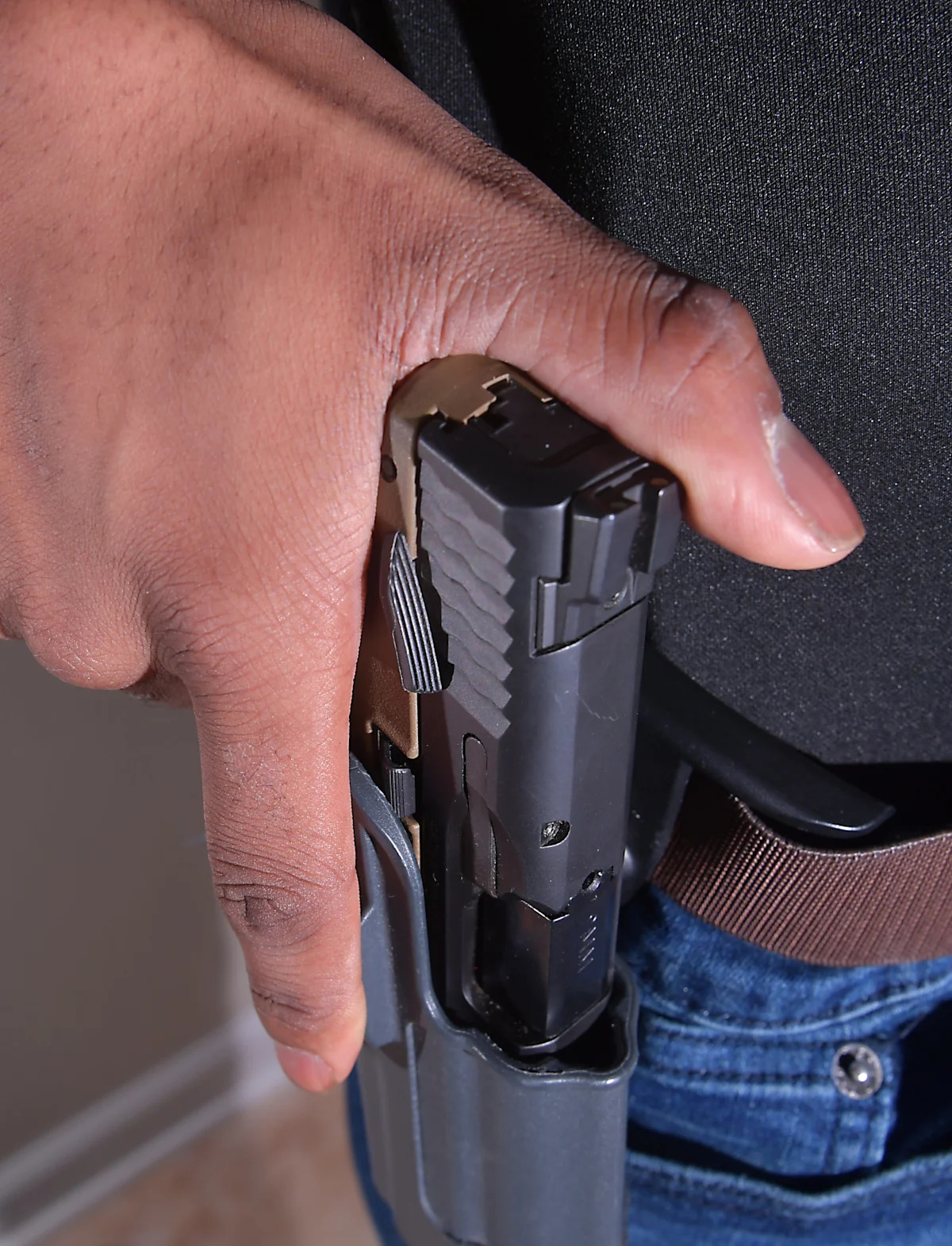
It is now legal to openly carry firearms in Florida. But not everywhere.
After a Sept. 10 appeals court ruling that said Florida’s ban on open carry unconstitutional state Attorney General James Uthmeier declared that the law, still on the books, was no longer valid.
“I’m issuing guidance to Florida’s prosecutors and law enforcement in light of the 1st DCA’s decision in McDaniels v. State,” Uthemier posted on X on Sept. 15. “Because no other appellate court has considered the constitutionality of Florida’s open carry ban since the SCOTUS decision in Bruen, the 1st DCA’s decision is binding on all Florida’s trial courts.
“Meaning that as of last week, open carry is the law of the state,” he said.
However, writing for the three-judge panel’s 20-page decision, Judge Stephanie Ray said, “That is not to say that open carry is absolute or immune from reasonable regulation.”
Uthmeier agreed in his memo to law enforcement, saying state and federal restrictions on carrying firearms in specific locations would still apply.
Can gun owners open carry in Florida?
Open carry can no longer be prohibited in any place where government property is open to the public and unrestricted.
Can I wear my gun in Publix?
Private property owners are still able to prohibit firearms on their property, which can include homes and businesses. Violation is considered armed trespass, a third-degree felony, Uthmeier said.
Publix asked back in 2021 for customers not to openly guns in their stores in states where open carry is legal, although they allowed concealed carry. Target asked customers to leave the guns home in 2014, Trader Joe’s said in 2019 that they “do not welcome weapons of any kind in our stores and never have,” and Walmart bans open carry but allows concealed carry.
Where can’t you open carry in Florida?
Other locations where state and federal prohibits open or concealed carry (with exemptions for law enforcement and correctional officers) include:
-
Any place of nuisance as defined in s. 823.05 (sort of an open term that includes places that endanger the health of the community, become “manifestly injurious to the morals or manners” of the community, or “annoy the community” such as prostitution dens, illegal gambling halls, specified massage parlors and anywhere criminal gang activity happens
-
Any police, sheriff, or highway patrol station
-
Any detention facility, prison, or jail
-
Any courthouse (although judges may carry in the courtroom and may determine who else can)
-
Any meeting of the governing body of a county, public school district, municipality, or special district
-
Any meeting of the Legislature or a committee thereof
-
Any school, college, or professional athletic event not related to firearms
-
Professional athletic events
-
Any elementary or secondary school facility or administration building
-
Any portion of an establishment licensed to dispense alcoholic beverages for consumption on the premises, which portion of the establishment is primarily devoted to such purpose
-
Any college or university facility
-
The inside of the passenger terminal and sterile area of any airport unless encased for shipment to be checked as baggage
-
Any place where the carrying of firearms is prohibited by federal law
“The McDaniels decision does not, however, prevent law enforcement from continuing to police those who ‘exhibit [firearms[ in a rude, careless, angry, or threatening manner’ in public,” Uthmeier wrote.
“And nothing in the decision permits individuals to menace others with firearms in public, nor does it undermine the State’s authority to prohibit felons from possessing firearms.”
Florida ‘red flag’ laws, other gun laws still apply
The change in open carry only applies to people legally allowed to possess a firearm. It does not affect other restrictions in Florida’s gun laws such as restrictions for people under the age of 21, convicted felons, “violent career criminals,” or people who have restraining orders from committing acts of domestic violence.
Florida’s red flag laws for risk protection orders also still apply. Under those laws, firearms may be taken from individuals who:
-
Have been taken into custody for an involuntary examination under the Baker Act
-
Have been adjudicated “mentally defective” or have been committed to a mental institution
-
Have been temporarily blocked from possessing firearms because a law enforcement officer or agency petitioned the court and stated they were at high risk of harming themselves or others
Florida law also has strict conditions regarding how long a person can be kept from possessing firearms in those instances and when they must be returned.
Open carry is now legal in Florida: How many other states allow open or concealed carry?
What is ‘open carry?’
“Open carry” means you can publicly carry a legally owned firearm that is kept in plain sight or partially concealed, usually holstered.
According to Florida law, openly carrying a firearm is a second-degree misdemeanor with a $500 fine or a maximum of 60 days in jail.
This article originally appeared on The Daytona Beach News-Journal: Florida makes open carry legal, but it’s still banned in these places
Disclaimer: This news has been automatically collected from the source link above. Our website does not create, edit, or publish the content. All information, statements, and opinions expressed belong solely to the original publisher. We are not responsible or liable for the accuracy, reliability, or completeness of any news, nor for any statements, views, or claims made in the content. All rights remain with the respective source.
